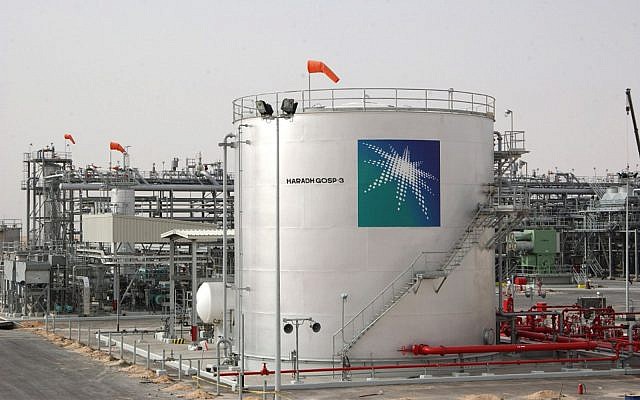Contrary to expectation that the latest Yemen 10 drones attack on Saudi Arabia would culminate in shortage and high price, the global market, Sunday, remained unresponsive.
Investigation by Vanguard, indicated that the prices of Bonny Light, Nigeria’s premium oil grade, Organisation of Petroleum Exporting Countries, OPEC Basket and Brent, remained unresponsive at $60.99, $60.51 and $60.22 per barrel, respectively.
The prices of – WTI, Urals and Mexican Basket – also remained low at $54.85, $57.25 and $56.13 per barrel, respectively.
The unresponsiveness of the volatile market to the development was attributed to huge excess supplies, which OPEC and other stakeholders, had been working to eliminate before the latest attack on the state-owned Saudi Aramco’s oil facilities in Abqaiq and Khurais.
In a statement issued Sunday, Saudi Energy Minister Prince Abdulaziz bin Salman stated that 5.7 million barrels a day of crude oil and gas production were subject to disruption.
He added that efforts were being made to rehabilitate facilities and restore output within the coming days.
Market
In a telephone interview with Vanguard, Sunday, a Port Harcourt-based energy analyst, Bala Zaka said: “Everything being equal, the attack will certainly lead to an increase in crude oil price due to the temporal crude oil supply disruption.”
Similarly, reacting to the attack and perceived impact, the International Energy Agency, IEA which coordinates energy policies of industrialised nations, disclosed that the market was still well-supplied with oil.
Christyan Malek, head of oil and gas research for Europe, Middle East and Africa at J.P. Morgan, added: “We are massively oversupplied.”
OPEC
Meanwhile, in a statement sent to Vanguard, OPEC, which rose from a crucial meeting in Abu Dhabi, United Arab Emirates, September 12, 2019, stated: “The Joint Ministerial Monitoring Committee (JMMC) has underscored the critical need for continued commitment to the ‘Declaration of Cooperation’ (DoC) in support of oil market stability on a sustainable basis.
“Conformity with the voluntary production adjustments remains high, 136% in the month of August. However, the JMMC reemphasized the core principles underpinning the DoC, namely, equity, fairness and transparency, and urged all participating countries to intensify their efforts in pursuit of full and timely conformity with their voluntary production adjustments.
“All participating countries present, particularly those who are yet to reach full conformity with their adjustments, were unequivocal in providing steadfast assurances of their determination to achieve at least 100per cent conformity for the remainder of the year. Those countries who have over-conformed also reiterated their voluntary contribution. Resultantly, overall conformity will be brought to record levels.”
It stated: “The JMMC observed the recent decline in OECD commercial stock levels, particularly in the US, although they remain above the five-year average. It was also noted that all major benchmarks are now in backwardation. Furthermore, the Committee analyzed the range of critical uncertainties facing the global economy in 2019 and 2020, including trade-related tensions, monetary policies and other macroeconomic factors. The JMMC urged continued vigilance in monitoring oil market conditions ahead of the Ministerial Meetings in early December.
“Despite this challenging backdrop, the DoC partnership continues to serve as a beacon of dependability and consistency in the global oil market, thereby providing reassurances for producers, consumers and global economy.”

